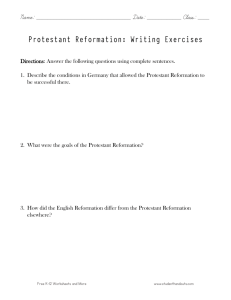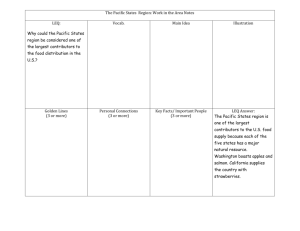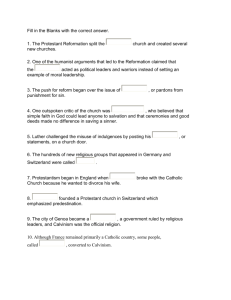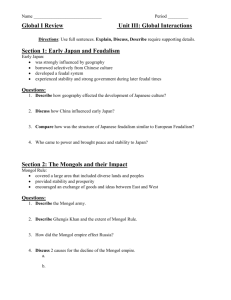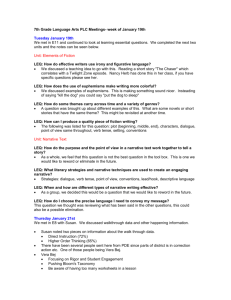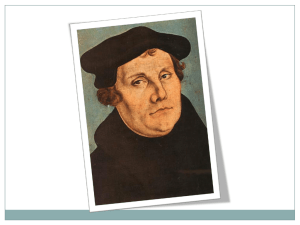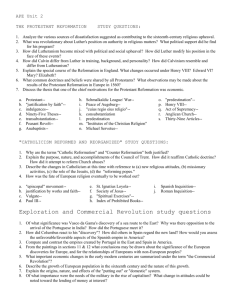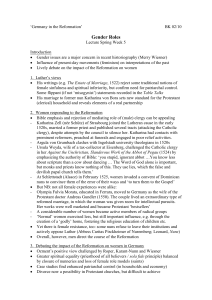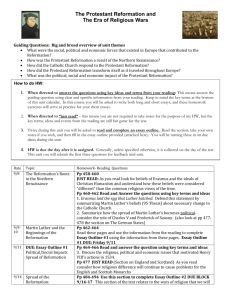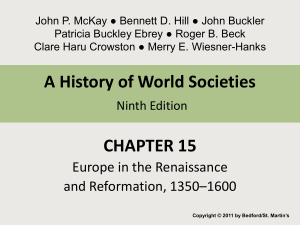Transformations in Europe
advertisement
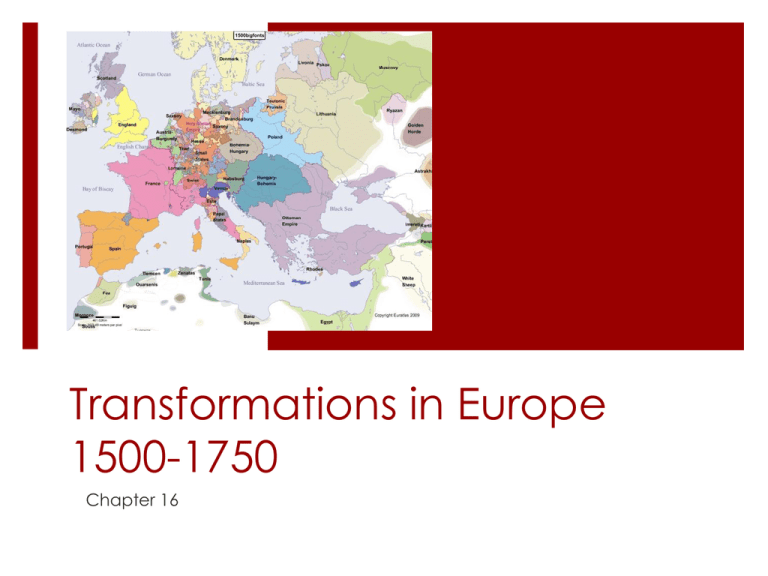
Transformations in Europe 1500-1750 Chapter 16 Culture and Ideas LEQ How did the interplay of traditional beliefs and revolutionary ideas influence the cultural history of early modern Europe? Vocabulary Papacy Indulgences Reformation Early Reformation Protests against the Catholic Church Martin Luther = Protestant Religion 95 Thesis John Calvin = Calvinism Counter Reformation Scientific Revolution Use science to reinforce religion Church leaders viewed new ideas as challenges to religious teachings Copernicus, Brahe, Kepler, Galilei, Descartes, Boyle, Newton Early Enlightenment New scientific ideas + Religious conflict between Catholics & Protestant = calls for social changes Political leaders looked to gain power Questioned the authority, wealth, power of church Social & Economic Life LEQ What factors contributed to the wealth of some Europeans and the great poverty of others from 1500-1750? Vocabulary Bourgeoisie Gentry Bourgeoisie Urban wealth came largely from foreign trade Wealthy commoners dominated economy Transatlantic trade increased a nations wealth Netherlands Amsterdam Exchange Dutch East & West India Companies Peasants & Laborers Warfare, environmental degradation, and economic contractions Little Ice Age Coal Production Pervasive poverty Led to Rebellion *Prices of wheat expressed in Dutch guilders per 100 kg. in various countries vs. time. Women & Family Status tied to husband Choose spouse or arranged marriage? Delayed marriage Political Innovations LEQ How did differing policies in the areas of religion, foreign relations, and economics determine the very different experiences of early modern European states? Vocabulary Holy Roman Empire English Civil War Development of States Western Europe monarchs helped develop national identities Habsburg’s Ottoman Empire German Unification Spanish Expansion Warfare Thirty-Years War Depopulation and economic decline Size of Army v. Navy Formation of alliances National debt, taxation Horrible Histories - English Monarchs England & France 1642 – English Civil War King executed Led to religious conflict Glorious Revolution English Bill or Rights King Louis XIV Worked with nobility and civil authority Absolute Monarch
